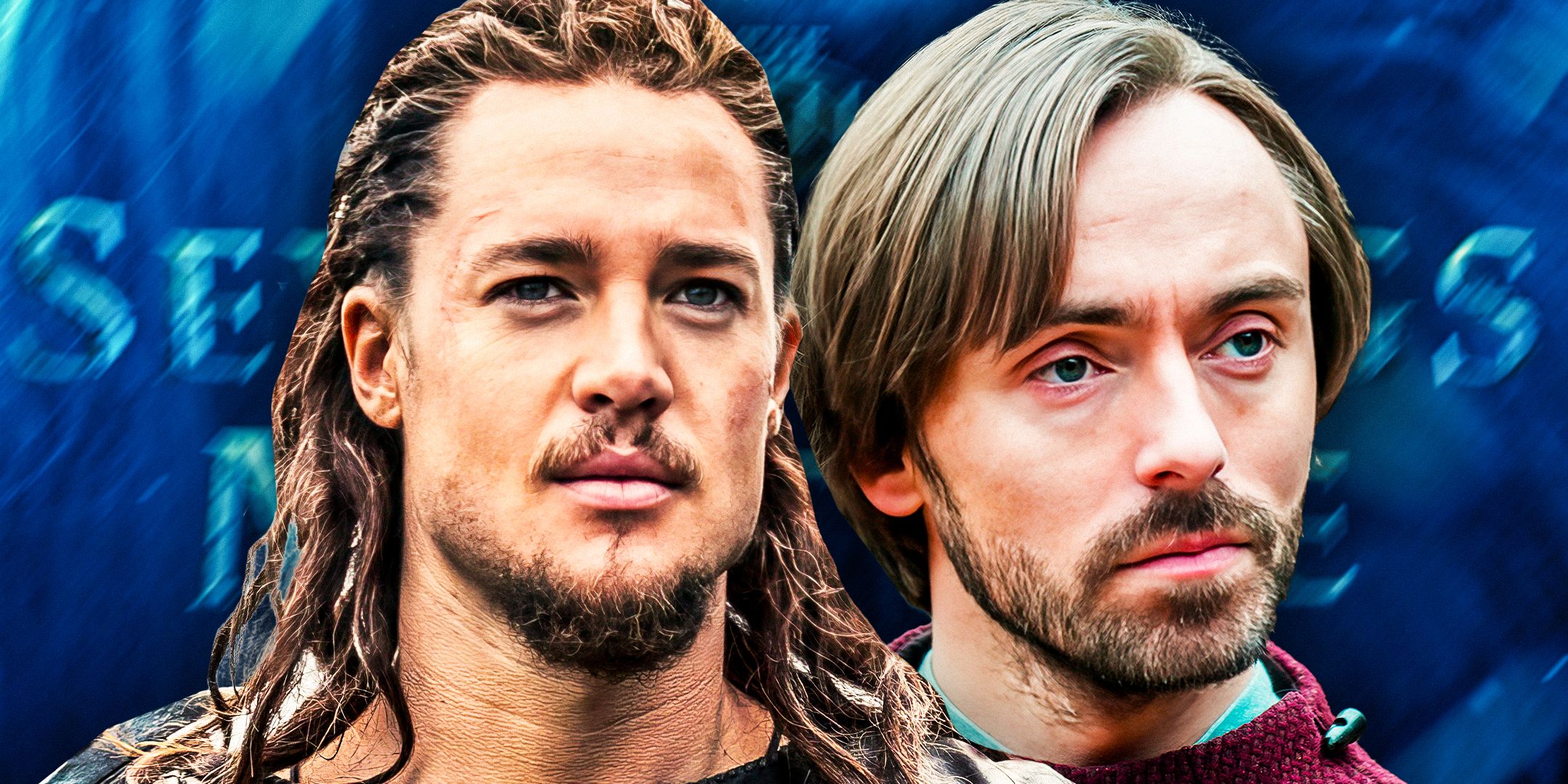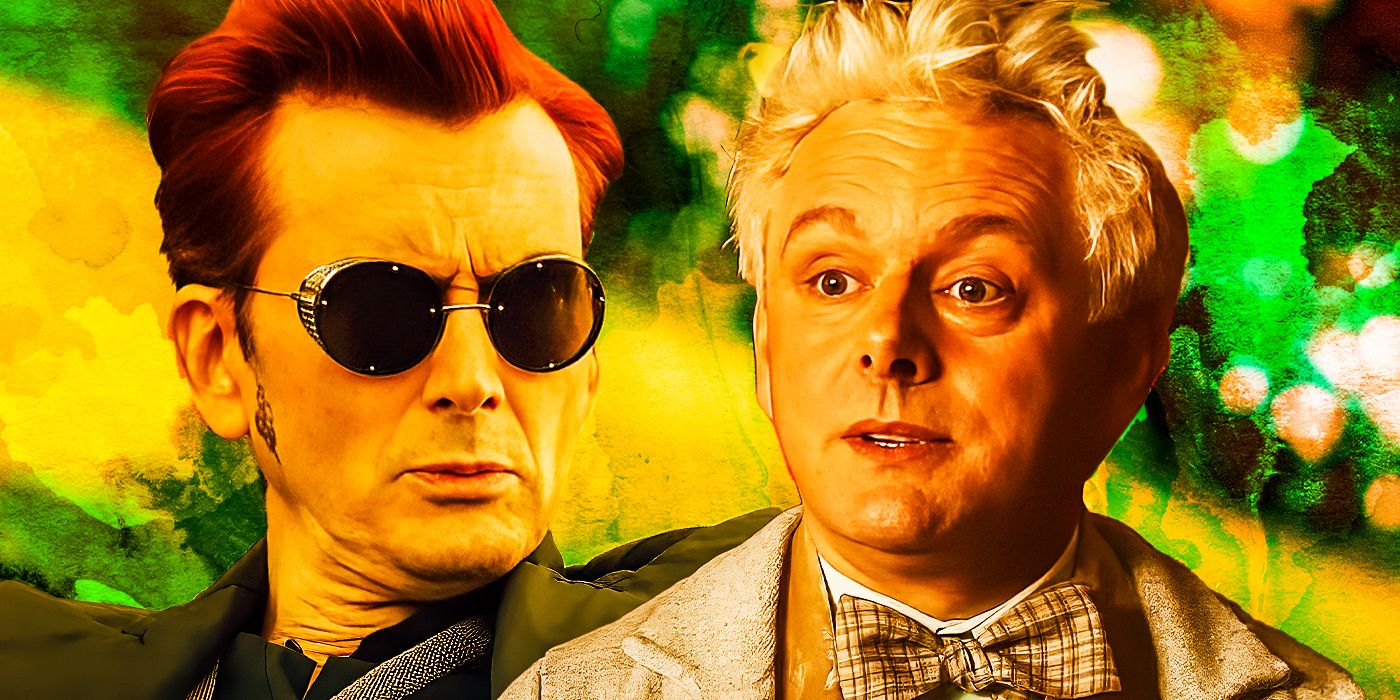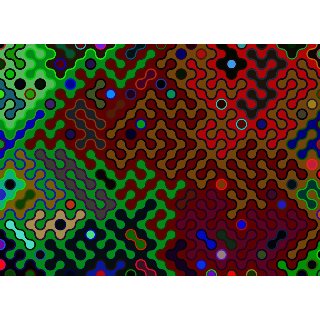Every Season Of The Last Kingdom And The Movie, Ranked By Historical Accuracy
Summary The Last Kingdom season 5 is the least historically accurate due to many fictional characters and changes to history.
The sequel film, Seven Kings Must Die, also struggles with historical accuracy, altering timelines and events.
Season 1 of The Last Kingdom is the most historically accurate, depicting crucial events with lower budget costumes.
The Last Kingdom follows the unification of England in the 9th and 10th centuries, making it interesting to rank each season of the show based on overall historical accuracy. The Last Kingdom is based on Bernard Cornwell's best-selling Saxon Stories novel series, following the fictional protagonist, Uhtred of Bebbanburg. The Last Kingdom's cast and writers help construct layered characters that have helped make the show one of Netflix's most popular series.
By the end of The Last Kingdom season 5, the show has depicted a number of critical historical events, culminating in the decisive Battle of Brunanburh in the show's sequel film, The Last Kingdom: Seven Kings Must Die. Between The Last Kingdom and its movie, the franchise covers several crucial decades of English history, but its depiction of events and portrayal of medieval life varies from season to season. This makes it possible to rank every season of The Last Kingdom and its movie based on their overall historical accuracy.
Related The Last Kingdom: Every Character Based On Real Life Figures The Last Kingdom is full of fascinating characters, and a fair amount of them are based on real historical figures from medieval England and beyond.
6 The Last Kingdom Season 5 (2022)
Adapts Warriors Of The Storm & The Flame Bearer
Close
The Last Kingdom season 5's historical accuracy is the lowest of any season in the show. The main problem with this season is that the story has expanded to include so many fictional or semi-fictional characters that it's difficult to craft a story without making significant changes to history. Arguably, the ultimate goal of The Last Kingdom season 5 is to reunite Uhtred with his ancestral home of Bebbanburg, and since he is a fictional character, the basic premise of the season is ahistorical.
Further, other fictional characters — like Brida and Stiorra — play significant roles in season 5 as well, requiring the show to fit them into the story somehow. What's more, the characters in the show who are based on historical figures don't follow real events very closely either. The best example of this is Aethelstan, who spends The Last Kingdom season 5 being raised by Uhtred, which obviously never occurred considering Uhtred is fictional.
All five seasons of The Last Kingdom are available to stream on Netflix.
Lastly, The Last Kingdom season 5's costumes and sets are slightly more contemporary than previous seasons, making them less historically accurate. The rugged furs and wool Uhtred wore in The Last Kingdom season 1 are exchanged for fitted black leather, ornamented with various metal studs. The sets also benefit from the show's increased budget, growing substantially in size and grandeur, and while this may make the sets look more impressive, they also tend to overstate the wealth of medieval England, hurting the show's historical accuracy.
5 The Last Kingdom: Seven Kings Must Die (2023)
Adapts War Of The Wolf, Sword Of Kings, & War Lord
Close
The Last Kingdom: Seven Kings Must Die, The Last Kingdom's sequel film, also struggles to paint an accurate picture of history — at least in relation to the earlier seasons of the show. Unlike The Last Kingdom season 5, Seven Kings Must Die's main storyline is based on historical events, but the film drastically changes the timeline and dramatizes the events significantly. The film accurately depicts the unification of England under Aethelstan after his victory at the Battle of Brunanburh at the end of Seven Kings Must Die, but the build-up to this event twists history.
The film also depicts Aethelstan as being far more erratic and unhinged than historical records suggest the real king ever was.
The real Aethelstan was much older than he's depicted in the film by the time of the Battle of Brunanburh, and his campaigning in the north is what really led to the conflict, rather than a sporadic mass invasion and forced conversion as Seven Kings Must Die depicts. The film also depicts Aethelstan as being far more erratic and unhinged than historical records suggest the real king ever was. Seven Kings Must Die also repeats The Last Kingdom season 5's problem by overstating medieval wealth.
The film doesn't use any costumes or sets that look egregiously out of place, but the humble outfits and structures depicted in the earlier seasons better represent the trappings of a relatively poor medieval society. Granted, the more expensive sets and costumes look great on-screen and are probably a big reason for the show's gradual growth in popularity, but the loss of historical accuracy is a consequence of that gain.
Your browser does not support the video tag.
4 The Last Kingdom Season 4 (2020)
Adapts The Pagan Lord & The Empty Throne
Close
The Last Kingdom season 4 is far from the most historically accurate season of the show, but it represents a step up from season 5 and Seven Kings Must Die. The Last Kingdom season 4 depicts a number of important historical events, including the Battle of Tettenhall and Lady Aethelflaed's induction as leader of the Mercians. The exact circumstances of these events played out differently in real life, but the show's depiction of them is generally accurate.
Further, The Last Kingdom season 4's historical accuracy still suffers a bit from its emphasis on modern aesthetic appeal, but it uses somewhat more realistic sets and outfits than the following season. All of that said, there are a few glaring flaws in the show's depiction of historical events and figures that prevent this season of The Last Kingdom from ranking higher. Chief among them is Lord Aethelred of Mercia, Aethelflaed's cruel husband.
The cruel and short-sighted Aethelred in The Last Kingdom is therefore difficult to reconcile with the historical figure who inspired him.
By all accounts, the real Aethelred was a competent statesman who understood the importance of his alliance with Wessex and rarely did anything to jeopardize it. There is also no evidence to suggest that the real Aelfwyn was not Aethelred's child, as the show depicts. The cruel and short-sighted Aethelred in The Last Kingdom is therefore difficult to reconcile with the historical figure who inspired him. Even so, The Last Kingdom season 4 is truer to history than its successors.
Related 8 Most Important Historical Events Depicted In The Last Kingdom The Last Kingdom and its sequel film, Seven Kings Must Die, depict a number of crucial historical events, including 8 especially vital moments.
3 The Last Kingdom Season 3 (2018)
Adapts The Burning Land & Death Of Kings
Close
The Last Kingdom season 3 largely focuses on the decline of King Alfred and the preparations for his son, Edward, to succeed him, which the show does a relatively good job of depicting. According to all historical records from the time, Alfred died of a long-term illness that he'd carried for years, making his contemplative mood in The Last Kingdom season 3 perfectly logical. Alfred is one of the most historically accurate characters in The Last Kingdom, so the seasons he's in are generally more accurate.
The Last Kingdom season 3 also employs relatively modest sets and costumes that more accurately depict life in Medieval England than later installments in the series.
Further, The Last Kingdom season 3 depicts several real conflicts between Saxons and Danes, even if it changes the names of a few of the people involved. The Last Kingdom season 3 also employs relatively modest sets and costumes that more accurately depict life in Medieval England than later installments in the series. However, there are several important storylines in The Last Kingdom season that focus on fictional characters, like the death of Ragnar, so there is a fair amount of fiction in this season as well.
Uhtred spends a lot of time in The Last Kingdom season 3 trying to break a curse he thinks Skade has laid on him, and later spends several episodes trying to find a way to help Ragnar's soul enter Valhalla. While both of these storylines are fictional, they represent certain superstitions and religious beliefs that were prominent at the time, making them historically plausible, even if the characters within are fictional. Still, season 3's predecessors display an even more impressive level of historical realism.
2 The Last Kingdom Season 2 (2017)
Adapts The Lords Of The North & Sword Song
Close
The Last Kingdom season 2 does an outstanding job maintaining historical accuracy, earning the second-highest spot in the show's ranking. This season focuses on Alfred's ambition to expand his influence, which results in Uhtred being enslaved for a time. While much of the story focuses on fictional characters, The Last Kingdom season 2 does an incredible job of depicting the harshness of life in a medieval European country.
This season also expertly depicts the environment of a medieval society.
It also catalogs the early expansion of Alfred's influence on Mercia and Northumbria, which is a critical piece of English history. A lot of the historical storytelling in The Last Kingdom season 2 comes through side plots and implications, but the show still manages to teach the audience a lot about the time period, even if it doesn't necessarily cover specific turning points in history. This season also expertly depicts the environment of a medieval society.
However, there is a major part of The Last Kingdom season 2's plot that marks a substantial departure from historical events, which is the capture of Aethelflaed by Sigefrid and Erik. There is no historical evidence of Aethelflaed being captured by Vikings of any sort, and it surely would have been recorded had it really happened. Although the rest of The Last Kingdom season 2 does an outstanding job sticking to history, this major departure is enough to prevent the season from ranking first in historical accuracy.
1 The Last Kingdom Season 1 (2015)
Adapts The Last Kingdom & The Pale Horseman
Close
The Last Kingdom season 1 is easily the most historically accurate season of the show. Firstly, it depicts a multitude of crucial historical events, including the crowning of King Alfred, the Battle of Edington, the Battle of Ashdown, and King Alfred's escape into the marshes. Further, The Last Kingdom season 1's lower budget forced it use more modest costumes and set designs, which actually makes it look more medieval than later seasons.
This strategy is the very basis of The Last Kingdom, but it is never done as expertly as it is in the first season, likely because it was easier to follow the books when the show had yet to build a separate canon for itself.
The Last Kingdom season 1 obviously focuses a lot on Uhtred, as he's the show's main character, but this season does the best job of seamlessly integrating his character into real historical events. This strategy is the very basis of The Last Kingdom, but it is never done as expertly as it is in the first season, likely because it was easier to follow the books when the show had yet to build a separate canon for itself.
The Last Kingdom season 1 also feels more like it's meant to educate as well as entertain, whereas later seasons of the show fall squarely into the entertainment category. Season 1 goes to great lengths to set up the historical period it takes place in, examining everything from the daily chores of farmers to the intricacies of geopolitical relations between the different cultural groups living in England at the time. In terms of total historical events depicted and worldbuilding accuracy, The Last Kingdom season 1 is easily the most historically accurate.











COMMENTS